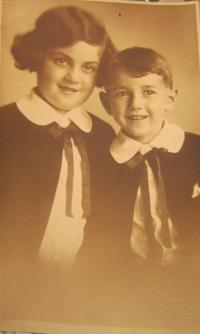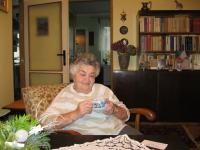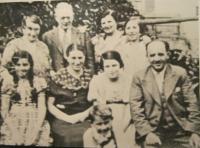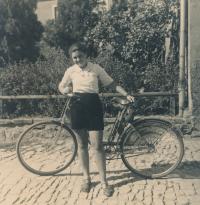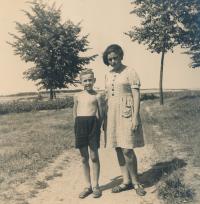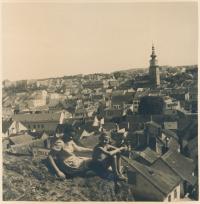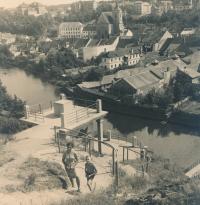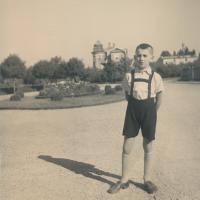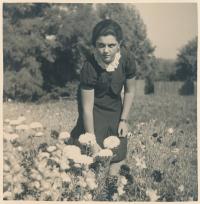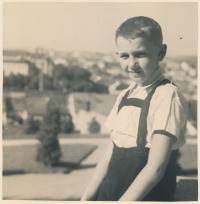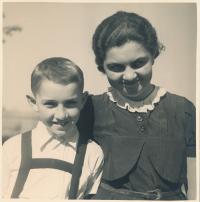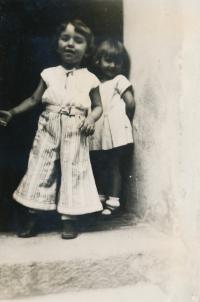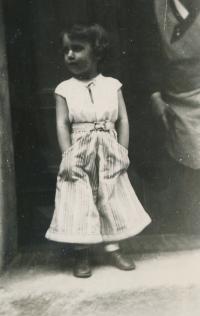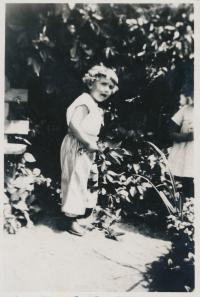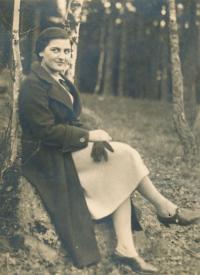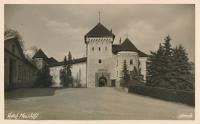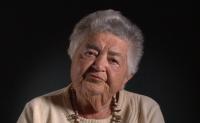“I survived myself”

Download image
Herta Coufalová, née Glasnerová, was born in 1926 in a Jewish family in Třebíč. She spent her childhood in a Jewish neighborhood that today is part of the UNESCO world heritage. Her parents were arrested in 1941. In May 1942, some 281 Jews from Třebíč were transported to Theresienstadt. Among them were Herta Coufalová, her brother Harry and her grandma Hermína. Hermína and Harry eventually died in Auschwitz. Herta was deported to Auschwitz in October 1944. She was also in other concentration camps, for instance Kurzbach or Gross Rosen in Silesia. From there, they were evacuated to Bergen Belsen in order to evade the approaching Red Army. On the way there, their railroad transport was almost hit by allied bombs. In the crowded Bergen Belsen camp, the inmates were left without food and water and Herta got sick with typhoid fever. It was a miracle indeed that she was able to survive till the liberation of the camp in April 1945. After the war, she was sent for convalescence to Sweden by the International Red Cross. After she returned to Třebíč, the shop that used to belong to her parents was taken by the so-called “national administrator” (národní správce) and the family property was only returned to her in March 1948. However, the ascendant Communists nationalized the shop in no time and the property has never again been returned to Herta, not even after 1990, in spite of several requests that she had filed. Presently, she lives in Šumperk.
